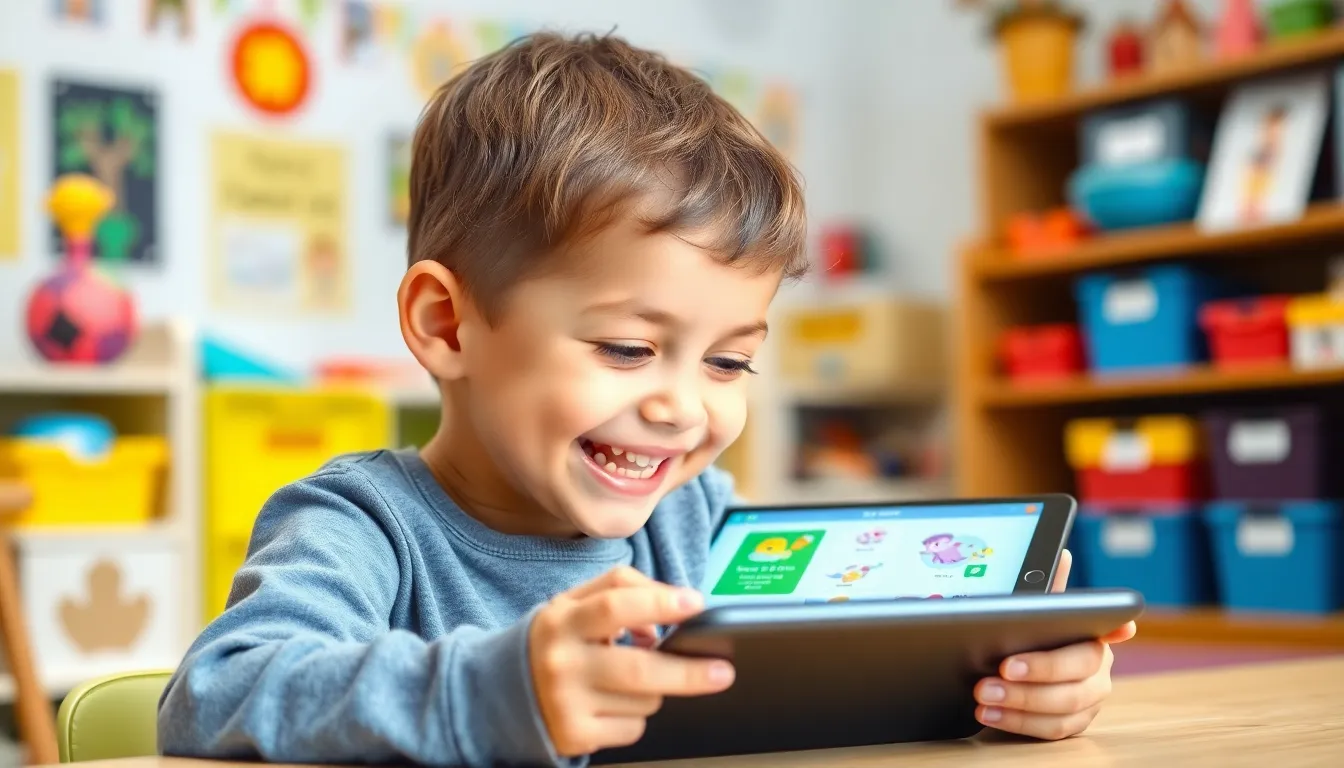In a world where swiping right can lead to a date and a well-timed meme can spark a friendship, developing social skills has never been more crucial. Whether it’s navigating the complexities of small talk or mastering the art of reading body language, these skills can turn awkward encounters into memorable connections. After all, nobody wants to be the person who talks to plants instead of people—unless they’re a botanist, of course!
Table of Contents
ToggleImportance Of Developing Social Skills
Developing social skills carries significant weight in today’s interconnected world. Interactions often start digitally, so mastering them enhances personal and professional lives.
Benefits For Personal Development
Personal development thrives through strong social skills. They foster improved self-confidence, enabling individuals to communicate freely. Engaging in conversations enhances empathy, allowing people to connect on deeper levels. Friendships form more easily when social skills strengthen, creating support networks. Problem-solving abilities increase as perspectives broaden during discussions. People learn to navigate diverse social situations, ensuring adaptability.
Impact On Professional Life
Professional life benefits greatly from effective social skills. Networking opportunities become accessible, enabling individuals to form crucial business relationships. Successful collaboration relies on clear communication, increasing team productivity. Leadership potential strengthens in those who master social interactions, as they inspire and motivate others. Negotiating skills improve, leading to favorable outcomes and reduced conflict. Employers often value these skills, recognizing their contribution to workplace harmony and innovation.
Key Components Of Social Skills

Understanding key components of social skills is essential for effective interactions. Two primary areas include communication skills and emotional intelligence.
Communication Skills
Communication skills encompass verbal and non-verbal forms. They enable individuals to express thoughts clearly and engage in active listening. Effective speakers articulate their ideas, while active listeners show interest through body language and feedback. Engaging in small talk can ease social situations, leading to deeper conversations. Practicing these skills in different settings, from casual gatherings to professional environments, builds confidence and fosters meaningful connections.
Emotional Intelligence
Emotional intelligence refers to the ability to recognize and manage emotions in oneself and others. It involves empathy, allowing individuals to understand and respond to the feelings of others. High emotional intelligence enhances teamwork and reduces conflicts. By identifying emotions, people navigate social dynamics more effectively. Developing this skill involves self-reflection and mindfulness, which contribute to stronger relationships. Engaging in discussions about emotions and experiences reinforces emotional awareness and connection.
Strategies For Developing Social Skills
Effective strategies enhance social skills. Individuals can practice various approaches to improve their interactions and foster relationships.
Active Listening Techniques
Active listening enhances conversations. Focus on the speaker, maintaining eye contact and avoiding distractions. Paraphrasing demonstrates understanding, reinforcing connection. Nodding and using affirmations encourages speakers to continue. Asking clarifying questions removes ambiguity and deepens engagement. Responding with empathy shows care and awareness of others’ emotions. Practicing these techniques regularly builds confidence, cultivates trust, and strengthens bonds.
Engaging In Social Situations
Engaging in social situations requires intentional effort. Initiating conversations often starts with simple greetings or compliments. Observing body language signals comfort or discomfort in others, providing cues for adaptation. Joining group activities fosters natural interactions, like clubs or local meetups. Sharing personal stories creates relatability and encourages reciprocal sharing. Adaptability in varied social settings is key, as it enhances versatility and boosts overall comfort. Practicing these engagement techniques enhances social presence, forming deeper connections over time.
Overcoming Challenges In Social Skills Development
Challenges in developing social skills often stem from underlying issues such as social anxiety and lack of confidence. Addressing these challenges is essential for personal and professional growth.
Addressing Social Anxiety
Social anxiety can hinder effective communication. Individuals may feel overwhelmed in social situations, leading to avoidance. Techniques such as deep breathing, grounding exercises, and visualization can alleviate anxiety. Exposure to social settings also plays a crucial role; gradually participating in more social interactions builds comfort. Support from friends or joining clubs fosters a sense of belonging, reducing feelings of isolation. Seeking professional help, such as cognitive-behavioral therapy, can provide additional strategies for managing anxiety effectively.
Building Confidence
Confidence directly impacts social interactions. Individuals gain confidence through practice and gradual exposure to social situations. Engaging in role-playing exercises helps prepare for real-life scenarios. Setting small, achievable goals fosters a sense of accomplishment. Positive affirmations and recognizing personal strengths reinforce self-esteem. Surrounding oneself with supportive people fosters encouragement and boosts confidence. Continuously reflecting on personal successes in social interactions cultivates self-assurance for future encounters.
Developing social skills is essential in navigating both personal and professional landscapes. By mastering communication techniques and emotional intelligence, individuals can create meaningful connections that enhance their lives. The journey toward improved social interactions involves practice and patience, but the rewards are significant.
Building confidence through gradual exposure and support from others fosters a sense of belonging. As individuals embrace these skills, they not only enrich their own experiences but also contribute positively to the communities around them. Ultimately, investing in social skills paves the way for a more connected and fulfilling life.








